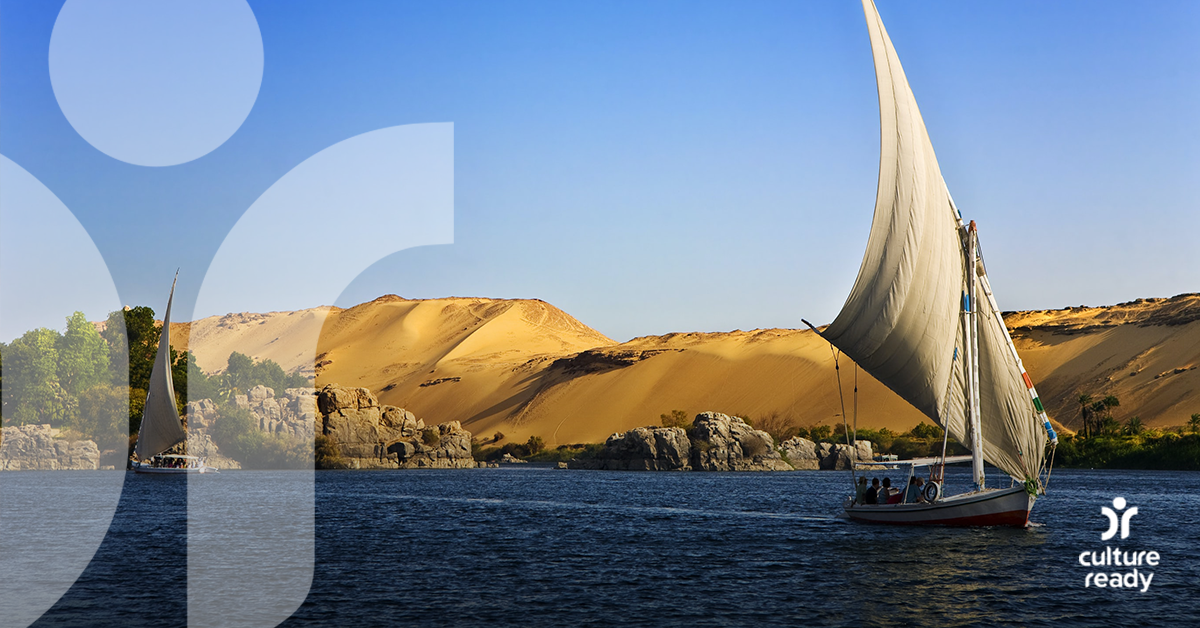Ten Fascinating Facts About Egypt
Topics
- Ancient Egyptian women had a wide array of rights. Although not seen as social equals to men, women in ancient Egypt could buy and sell land, serve on juries, and enter into legal contracts. In relationships, women could initiate divorce and remarry. It wasn’t the norm for women to work outside of the home, but, when they had jobs, they earned the same wage as men.
- Egypt is home to seven UNESCO World Heritage Sites. The iconic locations of Abu Mena, Thebes, Historic Cairo, Memphis, Nubian monuments, and the Saint Catherine Area are sacred sites to Judaism, Christianity, Islam, or ancient Egyptian beliefs. The last site, Wadi Al-Hitan, is home to the oldest whale fossils on earth.
- Cairo is the largest city in the Middle East. Over 22 million people call the Egyptian capital home. Cairo has been the capital of Egypt for 1,000 years. However, the Egyptian government is building a new capital, known as “New Administrative Capital,” to help with congestion in the metropolis.
- Egypt only has two seasons. Winter lasts from November to April and brings colder weather and storms. Summer lasts from May to October and ushers in the hot temperatures associated with desert climates.
- The modern calendar comes from Egypt. The ancient Egyptians first developed the 365-day, 12-month calendar that we use today. Initially, the calendar helped predict the annual flooding of the Nile river.
- Egypt is home to the largest embankment dam in the world. The Aswan High Dam, completed in 1970, was built to end the cycles of droughts and floods that happened each year. Although this was lucrative for tourism and farming, it negatively affected rural settlements that relied on the annual floods. Hydroelectric power from the dam provides half of Egypt’s electrical output.
- Egyptians have unique superstitions about luck. For good luck, Egyptians bury weasels under their front step. They also always step into a friend’s home with their right foot. If there is a crow perched on the roof it’s a sign of bad luck, and if a slipper is upside down, it’s considered an invitation for evil to come into the house.
- Beer played an important role in ancient Egyptian society. Widely consumed in ancient Egypt, a gallon of beer was given as the daily wage to workers building the pyramids. However, it didn’t have the same alcohol content it does today. Instead, it was a nutritious, sweet beverage. Millenia ago, Egyptians would even give offerings of beer to the dead.
- Each color on the modern Egyptian flag has a particular meaning. Red represents the sacrifices made by the Egyptian people in the struggle against oppression. White signifies peace and hope for the future, and black symbolizes the end of the colonization period.
- Ninety percent of the Egyptians practice Islam. Most of the Egyptian population is Muslim, and the remaining ten percent of the population is Christian. In addition, some cultural celebrations still revolve around the Egyptian gods worshiped in ancient times.
Learn More:
Interesting Facts About Egypt
11 Things You May Not Know About Ancient Egypt
